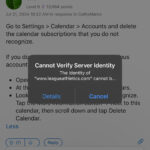Serving someone court papers, officially known as “service of process,” is a critical step in initiating a lawsuit in Florida. It’s the formal way to notify a defendant that they are being sued and are required to respond in court. This process is governed by strict rules to ensure fairness and due process, giving the defendant a proper chance to defend themselves. If service isn’t executed correctly according to Florida law and Rule 4 of the Federal Rules of Civil Procedure, your case could be dismissed by the court.
If you’re initiating legal action, understanding the correct procedures for service of process in Florida is essential. You’ll need to complete summons forms for each defendant and present them to the court clerk. Once signed and sealed by the clerk’s office, these summons, along with copies of your complaint and any attachments, must be officially served on each defendant. This service must be completed within 90 days from the date you filed your complaint. Failing to do so can result in your case being dismissed.
There are primarily three recognized methods to legally serve a defendant in Florida:
-
Personal Service: This involves physically handing the court documents directly to the defendant. In Florida, this must be done by someone who is at least 18 years old and not a party to the case. This server can be a professional process server, a sheriff’s deputy, or any competent adult not involved in the lawsuit. After delivering the documents, the server must complete the “Return of Service” section on the original summons, sign it, and give it back to you. This document serves as proof to the court that the defendant has been officially notified of the lawsuit. It’s crucial to file this Return of Service with the court to demonstrate proper service.
-
Waiver of Service: In some cases, a defendant may agree to waive formal personal service. This means they voluntarily acknowledge the lawsuit and agree to respond without needing to be officially served in person. This can simplify the process and save costs. To pursue a waiver, you can use the Waiver of Service of Summons (AO 399) form. You’ll need to complete this form and send it to the defendant along with a copy of the complaint and any attachments, typically by mail. If the defendant signs and returns the waiver form to the court (either directly or through you), personal service is no longer required. Waiver of service is often used when both parties are cooperative and wish to expedite the legal process.
-
Service by U.S. Marshal: In specific situations, particularly in federal court cases where the plaintiff is proceeding in forma pauperis (meaning they cannot afford court fees), the court may order the U.S. Marshal Service to carry out the service of process. This is usually granted if the court has waived the filing fee due to the plaintiff’s financial situation and determines the lawsuit is not frivolous or barred by immunity. Even when the U.S. Marshal is directed to serve the documents, it is still the plaintiff’s responsibility to prepare the summons forms and provide copies of the summons and complaint to the clerk’s office so they can be forwarded to the U.S. Marshal. Service by U.S. Marshal is a cost-effective option for plaintiffs who qualify, ensuring they can proceed with their case without the financial burden of hiring a process server.
Understanding and correctly executing service of process is a fundamental aspect of any lawsuit in Florida. Failure to comply with the rules can lead to delays, complications, and even dismissal of your case. Ensuring proper service protects the integrity of the legal process and upholds the defendant’s right to be informed and respond. Whether you choose personal service, waiver of service, or rely on the U.S. Marshal, adherence to the specific requirements is paramount for your case to move forward in the Florida court system.


